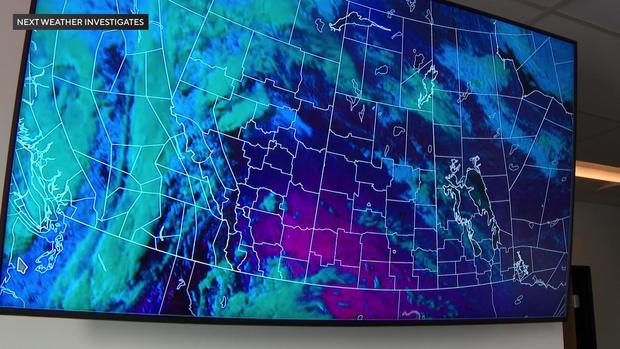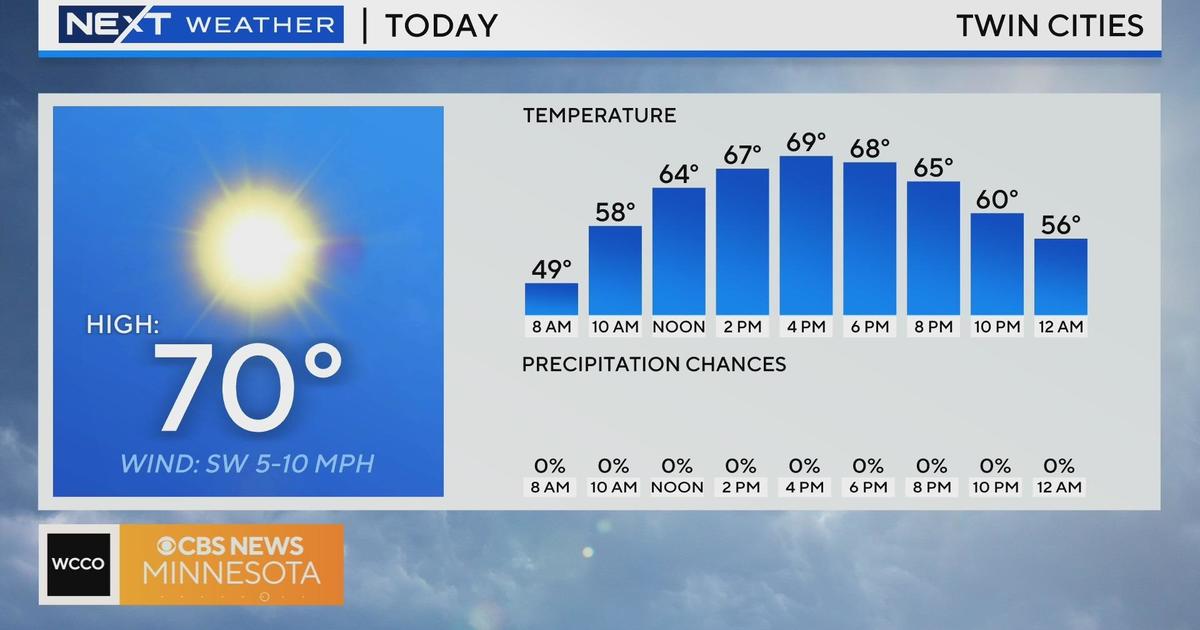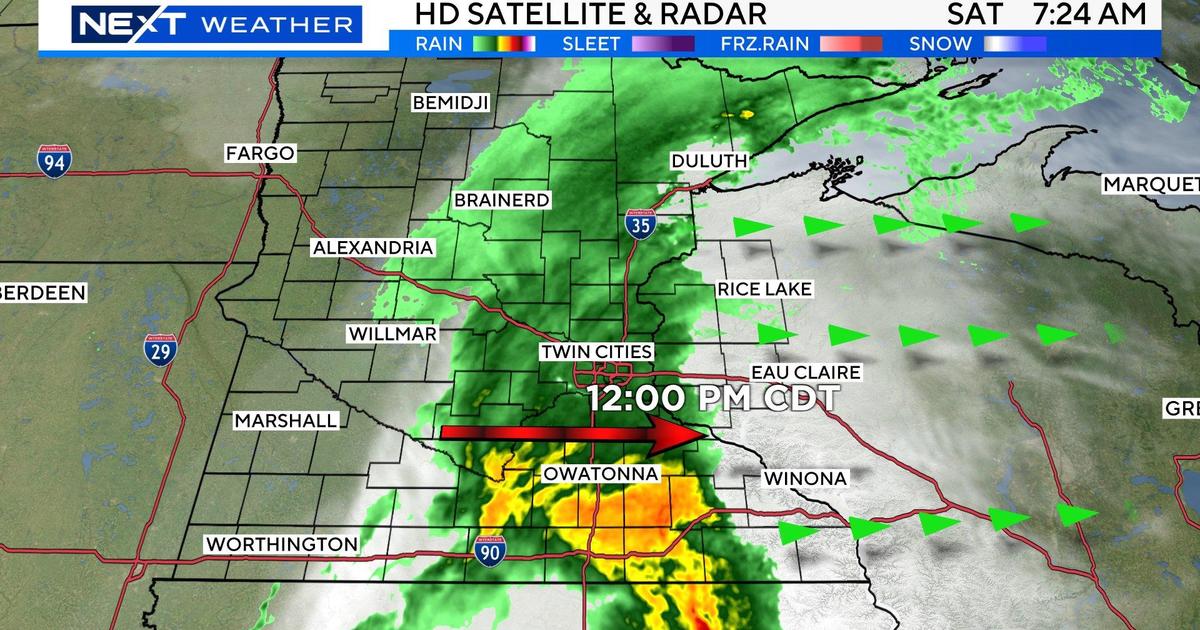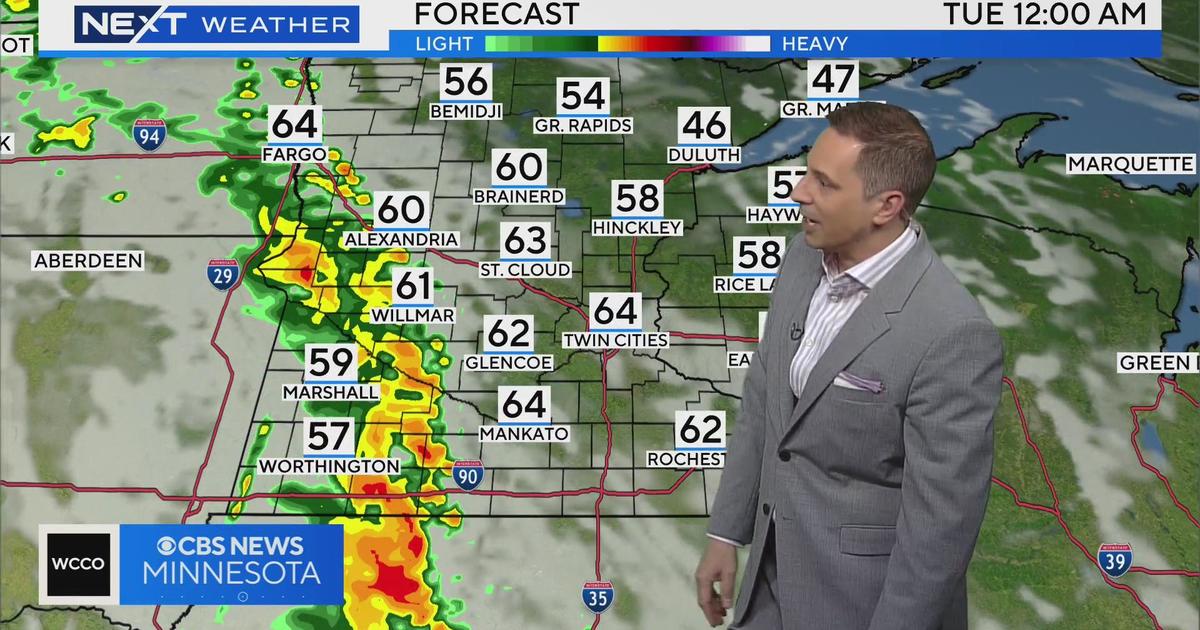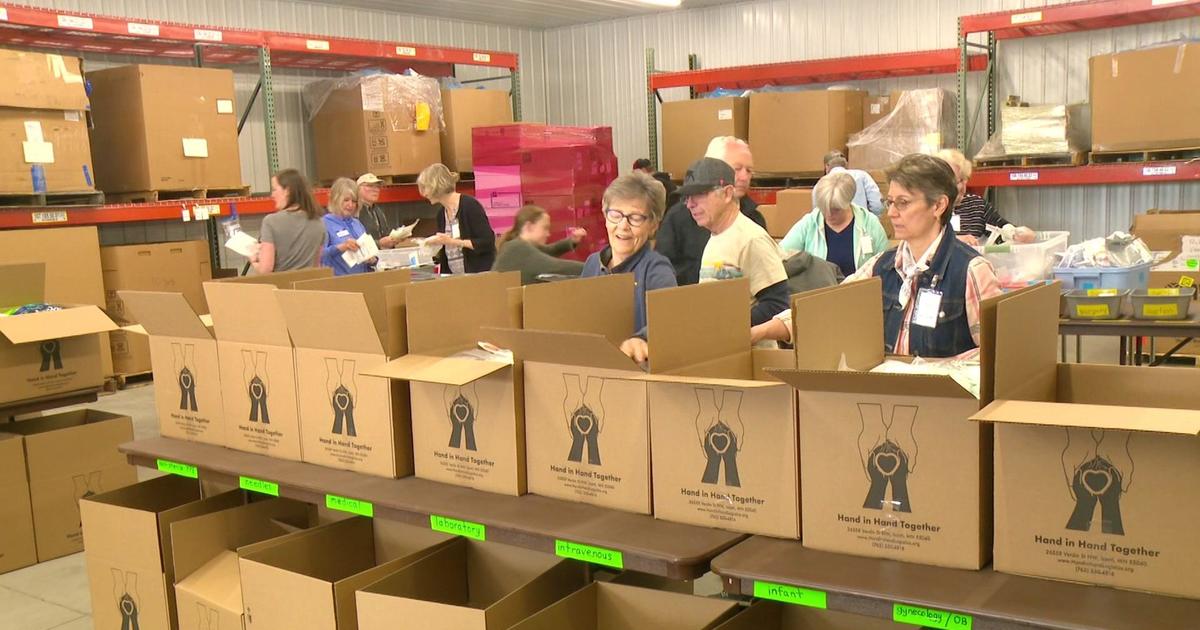Summer of Smoke: Canadian meteorologists adjust to forecasting smoke clouds as wildfires rage
WINNIPEG, MB, CANADA -- It's been bad in Minneapolis, bad in Chicago, and bad in New York.
It's been worse, however, for our neighbors in Canada.
"I can't help but think about it every so often. What's it doing, what are the long-term effects," Wolf Schnittker, an Ontario resident visiting Winnipeg, told WCCO News. "There will be four days in a row where air quality is poor. Then we might get a break, and then it comes again."
Schnittker, an avid swimmer and biker, said he's had to drastically adjust his exercise schedule to deal with the near-daily air quality alerts as a result from the historic wildfire season in Canada.
SUMMER OF SMOKE: WCCO visits Canada's hub of operations as nation battles 5,000 wildfires
"You got out and you think it's going to be a great day and then you smell it in the air, or you see it - the haze. It's directly above, and you don't see clouds and yet it's very hazy."
More than 5,000 wildfires have raged across the country since May, tearing throw at least 30 million acres of forest.
Tens of thousands of Canadians have been displaced from their homes because of the flames, while the mountainous plumes of smoke continue to pollute large swaths of North America, including Minnesota and Wisconsin.
To help bring answers to what's happening – and why – WCCO News traveled to Canada to spend several days north of the border and was among the very first American news operations to get inside access to firefighting operations.
Transitioning to Smoke Meteorology
At Winnipeg's National Storm Prediction Center, meteorologists with the Ministry of Environment and Climate Change are usually focused on tracking thunderstorms from the Canadian Rockies and into the Prairies.
This summer their portfolio has expanded to include forecasting smoke clouds, including their reach across the continent and how it moves up and down levels of the atmosphere.
"A few years ago, all we were watching were thunderstorms because there weren't this many fires," Senior Meteorologist Dave Carlsen explained to WCCO. "Then it seems a couple years ago something ramped up and we got a lot more fires, and oh boy it's been smoke every summer since."
According to Carlsen, smoke clouds often follow the jet stream and natural air currents. The key difference, he says is how the smoke can either stay up and create the haze or come down to ground level.
"Yeah, it's really bad for breathing at the ground. You can smell it, you can almost taste it sometimes," he added.
Smoke disrupting thunderstorms
The haze has at timed cooled temperatures, as well, making for some more comfortable summer afternoons that could have been sweltering.
Carlsen warned, however, the smoke's impact on ground temperatures simultaneously calms the atmosphere, thus negatively affecting the formation of thunderstorms.
"The smoke has been changing how often or how many thunderstorms would form in any given area," he said. "Instead of being stormy, it's most sunny with haze up top."
SUMMER OF SMOKE: Protecting yourself and loved ones from wildfire pollution
The data appears to back that up, too. In Minnesota, a Next Weather Investigation analysis counted just 408 severe thunderstorm and tornado warnings across the state since July 30, 2022. In the same period the previous four years - there have always been more than 1,000.
"What we just need is a change in the weather pattern to move out that smoke so we can get the thunderstorms, get the rain, and then that will wash out smoke in the atmosphere. It's kind of a self-fulfilling cycle," he said.
There is, of course, no predicting how and when that change will take place, and until that happens, it's status quo for Carlsen's team: smoke meteorology is indefinitely part of the vernacular.
"It's kind of a fact of life for us now," he said.
